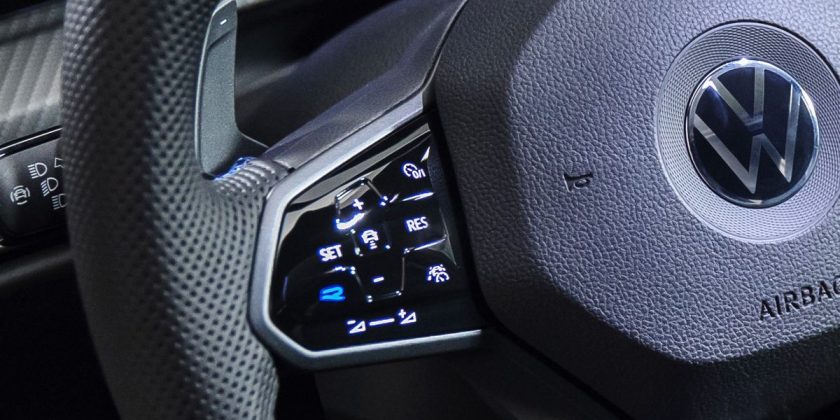CEO of Volkswagen Passenger Cars Thomas Schäfer has announced on LinkedIn that the German brand will be bringing back physical buttons to its steering wheels.
In the post, Schäfer revealed “We are sharpening our portfolio and our design, plus creating a new simplicity in operating our vehicles. For example, we are bringing back the push-button steering wheel!” He added that the brand is listening to owners, and the reintroduction of physical controls is something “customers want from VW.”
Volkswagen’s touch sensitive controls on higher spec variants of its cars, such as the Golf GTI and R, Tiguan R and many of its electric models, have come under criticism in recent times. The controls consist of a smooth, black piece of plastic on the steering wheel which can be easily activated by accident. Users also dislike the lack of feedback offered when using a touch sensitive system.

Some lower-spec models offered by the brand still use physical controls, and Volkswagen has previously made specific reference to the use of these in models such as the Amarok pick-up. With the brand touting the benefits of physical buttons and the CEO’s post proudly announcing their widespread comeback, Volkswagen is essentially admitting touch sensitive controls aren’t as good.
They’re not the only ones – a Swedish car magazine recently put a selection of modern cars’ touch screen infotainment and in-car controls to the test against the controls of a mid-2000s Volvo V70. It showed that the lack of feedback offered by a touchscreen system and inability to feel the controls, plus the waiting times for the system to load, can cause the driver to take three times as long to carry out a task than if they were using physical buttons.
DS is one car manufacturer that has already announced that the future of its in-car media systems may ditch touch screens completely. Is it the beginning of the end for touchscreens and touch controls in cars, or are they here to stay?
Source: Read Full Article
